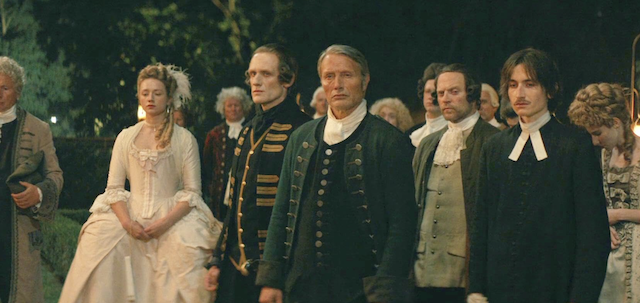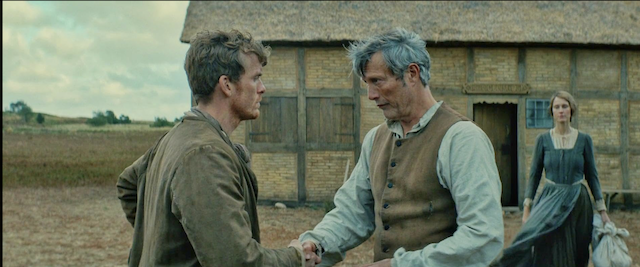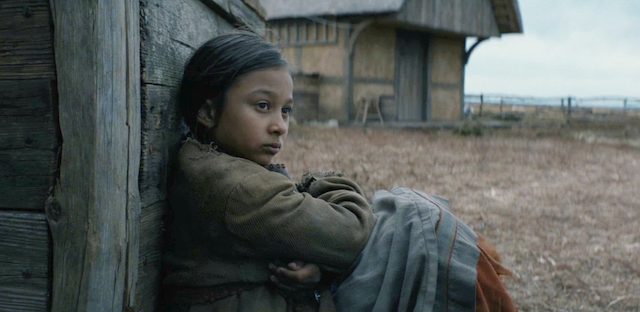
More than ten years after A Royal Affair (Academy Awards nomination for Best International Picture) Danish director Nikolaj Arcel and international star Mads Mikkelsen have teamed-up again for another period-drama set in 18th century Denmark. The Promised Land follows the story of ex-captain Ludving Kahlen, who after serving 25 years in the army decides to leave civilization and settle in the heath.
His dream is to start a farm in that most inhospitable land, so that one day he will obtain prestige, wealth and a noble title. In order to achieve his goal, Kahlen must face the ruthless tyranny of land owner Frederick de Schinckel (Simon Bennebjerg), who doesn’t want competitors in the area.
Based on the book written by Ida Jessen, The Promised Land is an adaptation whose primary strength lies in the screenplay by Arcel and Anders Thomas Jensen. The script is clearly – and rightfully – structured to create an epic, heroic melodrama capable of resonating with mainstream audiences. The figure of the self-made man, born of humble origins and forged by strong values, who fights against all odds in order to achieve lofty goals, is depicted in this movie in a quite intriguing way, especially because Ludvig isn’t always an amicable man, quite the contrary in fact.

©Courtesy of Magnolia Pictures
The main character’s narrative arc is quite interesting because his selfishness and sense of opportunity don’t really disappear until he gets what he wants, a trait that makes Kahlen a quite peculiar man to follow and root for. The director probably would not have been able to achieve this level of reality in the protagonist’s portrait without the charismatic performance of Mads Mikkelsen, capable as always of using just silence and glances in the most powerful way.
This is clearly a kind of younger Clint Eastwood-like role, and the Danish actor knows it perfectly: in scene after scene he is very careful into developing Kahlen’s status, his own “aura”, until he becomes a sort of ageless hero, the sheer personification of his own ideals (and flaws).
Mikkelsen shows this ambiguity with courage, developing the best performance since Another Round by Thomas Vintenberg. The rest of the cast work with coherence and psychological adhesion to their own characters, depicting a world of caste, abuse and violence that Arcel isn’t afraid to put in front of the audience. The Promised Land is in fact a quite violent movie, especially when the violence is not shown but implied, and that makes the effect even more troubling.
Visually, it is by far the best movie by Arcel, who uses the wild and hostile landscapes in order to express the human condition not only of his main character, but of the Country itself. The director seems to have made his own the lesson of colleagues like Terrece Malick, especially his masterpiece Days of Heaven (id., 1978), only reversing the relationship between human beings and the environment around them.
The work of cinematographer Rasmus Videbæk should also be praised, as he gives a painful soul to the endless plain where most of the movie is set. If you are looking for a European period-movie which follows the tradition of James Ivory and his elegant, stylized mise-en-scene, The Promised Land just isn’t for you.
There is blood, there is dust, there is desperation in Nikolaj Arcel’s movie. What you’ll find instead is a solid melodrama with a layered main character and, above all, a powerful performance by the never disappointing Mads Mikkelsen. It’s definitely more than enough….

©Courtesy of Magnolia Pictures
Check out more of Adriano’s articles.
Here’s the trailer of the film.

